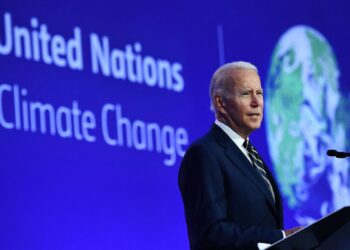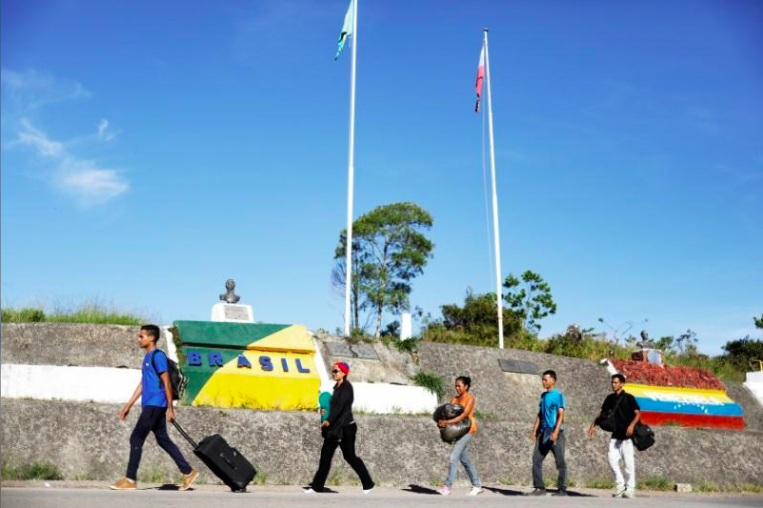Renewed attention to U.S. violations of international norms and human rights law has emerged with the controversies surrounding the President Donald Trump administration’s zero-tolerance policy. At the core of this new policy is the detention and pursuit of criminal prosecution for all suspected irregular border crossings (crossings outside a designated port of entry). Its implementation has caused an unprecedented number of children to be separated from their detained adult family members.
The widespread backlash to the family separation component of the policy, including criticism among some Republicans, has prompted Trump to issue an executive order directing that families be detained together while awaiting criminal proceedings.
However, the executive order maintains the zero-tolerance policy in which any migrant suspected of unlawful entry will be charged with the crime of improper entry and detained. The order also directs the U.S. Attorney General to challenge the Flores Settlement Agreement, which established limitations on the detention and treatment of immigrant children. The administration’s new approach to immigration raises several important issues regarding U.S. compliance with international human rights and refugee law. Given that the U.S. is a major world power, its violations of legal norms in these areas have the potential to erode legitimacy and undermine the international rule of law.
International human rights law provides a fundamental basis for the protection of asylum seekers, refugees, and forcibly displaced persons. Article 14 of the Universal Declaration of Human Rights provides for “the right to seek and to enjoy in other countries asylum from persecution.” The flows of irregular migration along the U.S. southern border include individuals and families that have been displaced by grave conditions of war and violence in Central America. For those seeking refuge from harm, persecution, and torture, international legal obligations necessitate countries follow established norms and principles in accordance with the rule of law. The U.S. is party to the Refugee Convention and Protocol, which governs the treatment of refugees and asylum seekers. The current U.S. approach on immigration risks violating several of the convention’s core tenets.
First, Article 33 establishes the principle of non-refoulement, which prohibits states from returning individuals to territories where they might face persecution or torture. At the heart of this provision is an obligation on governments not to deny asylum seekers and refugees access to protection. The administration has stated that the zero-tolerance policy applies to any migrants who enter outside formal ports of entry, but reports indicate that Customs and Border Patrol agents have been turning asylum seekers away from ports of entry along the southern border. U.S. Secretary of Homeland Security Kirstjen Nielsen recently acknowledged that asylum seekers were being blocked from admission at ports of entry due to a temporary lack of “resources.” This move frustrates the right of asylum and arguably steers individuals fleeing harm and persecution to seek irregular entry as an alternative.
Second, Article 31 prohibits states from imposing penalties on asylum-seekers “on account of their illegal entry or presence,” including penalization through detention.
In pursuing criminal prosecution and detention for all migrants and asylum seekers suspected of unauthorized entry, the new zero-tolerance U.S. immigration policy violates this provision and human rights norms of non-detention more broadly. Other instruments of international human rights law such as the International Covenant on Civil and Political Rights (ICCPR) – which the U.S. ratified in 1992 – prohibit arbitrary detention and the deprivation of liberty. The ICCPR holds that detention should only be used with an individualized determination of a need to detain, which should then be periodically reviewed by an independent court. A blanket detention policy for all illegal crossings directly contravenes this principle.
The United Nations has repeatedly instructed states to avoid the detention of asylum seekers and migrants and to ensure that fair and expeditious procedures are used to prevent unduly prolonged detention. The prohibition on arbitrary detention under international law and the universal right to seek asylum were both recently reaffirmed by a U.N. Working Group, which clarified that “the maximum period for which migrants can be held must be set out in law, while indefinite detention cannot be justified and is arbitrary.”
The U.S. administration’s plans to challenge the Flores Settlement Agreement so that children and families can be detained indefinitely while awaiting criminal proceedings, therefore, represents another important aspect of the new immigration policy at odds with international human rights standards.
It is important to note that the origins of the zero-tolerance prosecution and detention policy also raise concerns about U.S. compliance with international human rights norms.
Evidence that the policy was created to deter migrants and asylum seekers from seeking entry along the southern border can be found in Homeland Security documentation and in statements made by top administration officials such as White House Chief of Staff John Kelly. The U.N. High Commissioner for Refugees has repeatedly established that the detention of asylum seekers could not be used as a deterrent to prevent further arrivals, as that this approach “frustrates the ability of individuals to escape harm and seek safety” and violates prohibitions on arbitrary detention under international law.
In sum, the new zero-tolerance immigration policy subverts the protected status of asylum seekers, criminalizes a distinctly humanitarian category of migrant, and places the U.S. at odds with its international obligations. When the U.S. bound itself to legal frameworks like the Refugee Convention and the International Covenant on Civil and Political Rights, it committed to fundamental human rights principles and asylum seeker protections that are central to the international rule of law.
The U.S.’s violations of these standards disrupt notions of a rules-based international order and potentially encourage other states to follow suit with the understanding that a global, democratic superpower endorses such practices.
Disclaimer: The views and opinions expressed here are those of the author and do not necessarily reflect the editorial position of The Globe Post.






















